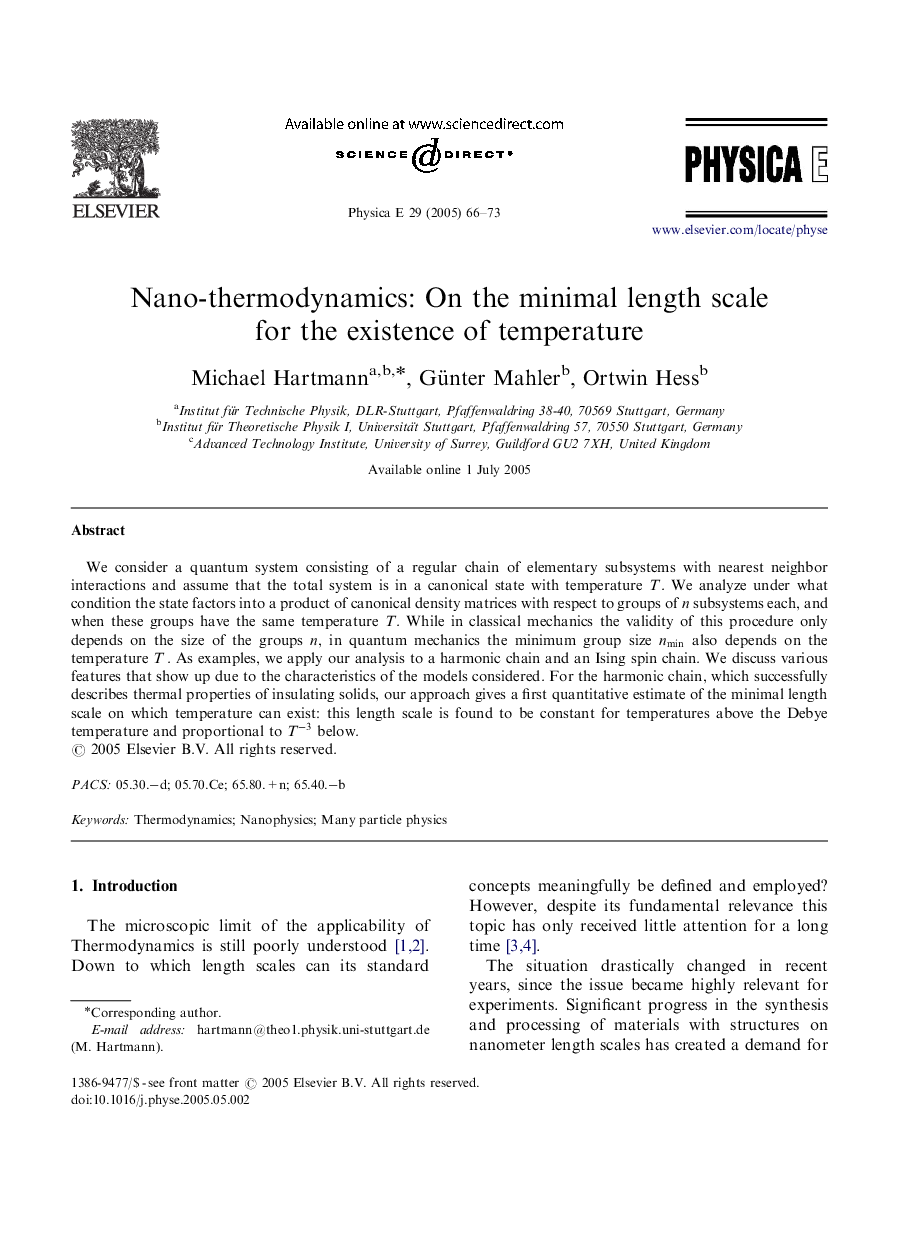| Article ID | Journal | Published Year | Pages | File Type |
|---|---|---|---|---|
| 9789638 | Physica E: Low-dimensional Systems and Nanostructures | 2005 | 8 Pages |
Abstract
We consider a quantum system consisting of a regular chain of elementary subsystems with nearest neighbor interactions and assume that the total system is in a canonical state with temperature T. We analyze under what condition the state factors into a product of canonical density matrices with respect to groups of n subsystems each, and when these groups have the same temperature T. While in classical mechanics the validity of this procedure only depends on the size of the groups n, in quantum mechanics the minimum group size nmin also depends on the temperature T. As examples, we apply our analysis to a harmonic chain and an Ising spin chain. We discuss various features that show up due to the characteristics of the models considered. For the harmonic chain, which successfully describes thermal properties of insulating solids, our approach gives a first quantitative estimate of the minimal length scale on which temperature can exist: this length scale is found to be constant for temperatures above the Debye temperature and proportional to T-3 below.
Related Topics
Physical Sciences and Engineering
Materials Science
Electronic, Optical and Magnetic Materials
Authors
Michael Hartmann, Günter Mahler, Ortwin Hess,
